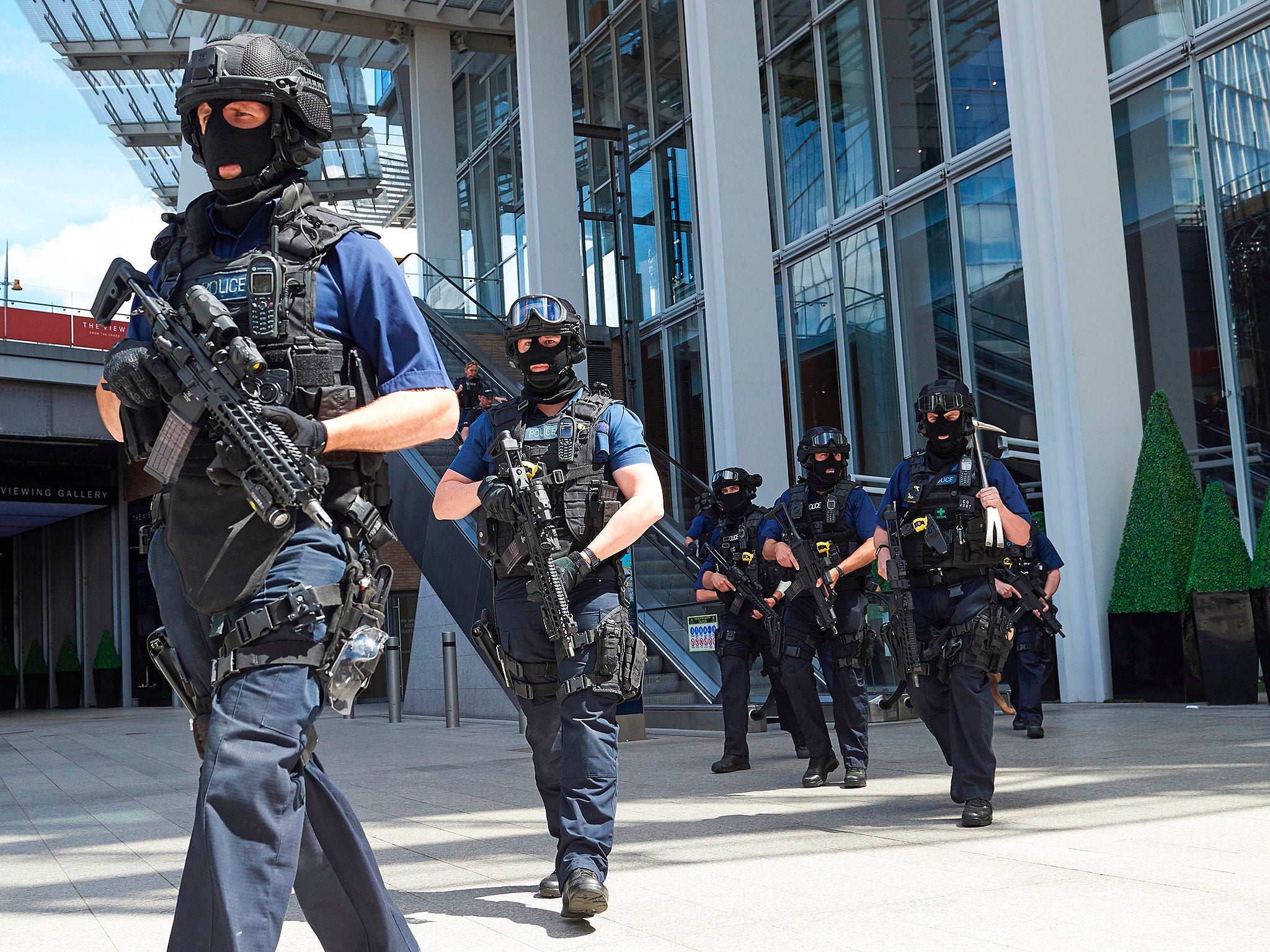UK terror arrests rise almost 70% in a year to reach record high, new figures show
Security services have foiled 19 terror plots in the past year, security minister says

The number of arrests for terror offences in the UK has risen almost 70 per cent in a year to a record high.
New statistics released by the Home Office show there were 379 arrests in the year to June, compared to 226 in the previous 12 months.
It is the highest number of terror arrests on record, coming in the period that saw four attacks hit London and Manchester.
A dozen suspects were arrested in connection with the Westminster attack in March, 23 people following the Manchester Arena bombing in May and 21 more arrests were made in the wake of the London Bridge attack the following month.
The perpetrators of all three Isis-linked attacks died while carrying out the atrocities and none of those arrested have been charged.
Only one arrest was made following the Finsbury Park terror attack in June, where a van was allegedly rammed into Muslim worshippers leaving evening prayers, killing one person.
Ben Wallace, the security minister, said a further 19 terror plots have been foiled in the past year.
“The tempo is increasing,” he told The Independent, while praising the “amazing work” by police and intelligence officers.
The Senior National Coordinator for Counter Terrorism Policing said there has been a “shift-change in momentum” since March.
Neil Basu, who is also Deputy Assistant Commissioner of the Metropolitan Police, added: “But while the terrorist threat has increased in recent months, so has our activity; reflected by this significant increase in arrests.
“We’re taking every possible opportunity to disrupt terrorist activity – be it making arrests for terrorism offences, intervening where there are signs of radicalisation, or working with communities to prevent terrorists operating in their area.
“Police, together with the security services, are determined to make the UK as hostile an environment for terrorists as possible.”
Deputy Assistant Commissioner Basu warned that there is no “typical terrorist“ and urged the public to stay alert and report any suspicious activity to police.
Of the 379 arrests made nationwide, just under a third resulted in a charge and half the suspects were released.
The vast majority of those detained were men, aged over 30, British and of an Asian ethnic appearance, although more than a third of those detained were white.
Fifty-four female terror suspects were arrested – the largest proportion on record – and 17 of those held were aged under 18.
More than three quarters were categorised as “international” terrorists, indicating they were linked to or motivated by a foreign group such as Isis.
More than 30 of the prosecuted terror suspects have so far been found guilty and dozens of cases remain ongoing, while there are more than 200 convicted terrorists already in prison.
The Home Office said that the vast majority – 91 per cent – of those in custody held Islamist extremist views, while 5 per cent were from the far-right.
As well as intelligence operations and arrests, the Metropolitan Police have carried out more than 600 stop and searches under the Terrorism Act in the past year, although only 8 per cent resulted in arrests.
Finsbury Park attack
Show all 14Security services are currently monitoring around 3,000 people perceived to be an imminent threat, as well as a wider pool of 23,000 people who have previously appeared on the radar of counter-terror agencies.
Among those known to security services but not considered an imminent danger were the perpetrators of the three Isis-linked terror attacks that have killed 35 victims in Britain this year.
Westminster attacker Khalid Masood was described as a “peripheral figure” by Theresa May, while the Manchester bomber Salman Abedi was known to MI5 but not under active investigation and the ringleader of the London Bridge attack, Khuram Butt, was not thought to be a risk despite being a known member of Anjem Choudary’s banned network.
The Government has been increasing efforts to combat the presence of online propaganda and communications between militants using encrypted messaging apps.
As well as domestic extremists, security services are attempting to manage the threat posed by returning foreign fighters.
The arrival of up to 300 British jihadis from Isis’ former territories in Syria and Iraq was initially feared, but the actual number is now expected to be significantly lower.
Of around 850 people who left the UK for the so-called Islamic State, around 350 have already returned and an estimated 200 have been killed.
Subscribe to Independent Premium to bookmark this article
Want to bookmark your favourite articles and stories to read or reference later? Start your Independent Premium subscription today.
